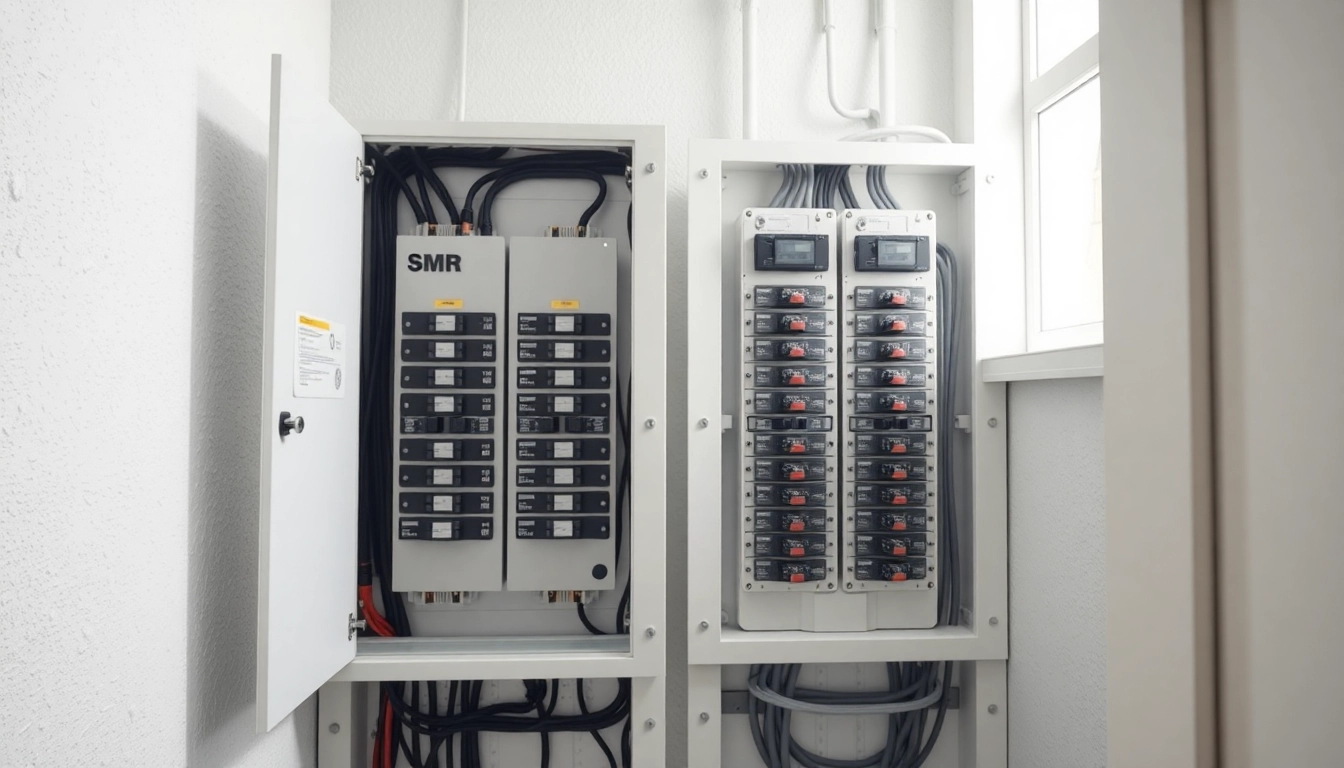Understanding Garden Maintenance Services
What Is Garden Maintenance?
Garden maintenance refers to a variety of horticultural practices aimed at ensuring the health, beauty, and longevity of your garden. While some homeowners may take pride in caring for their outdoor spaces, others may find it challenging due to a lack of expertise or time. This is where garden maintenance service providers come into play. These professionals offer comprehensive solutions, ranging from routine tasks such as lawn mowing, weeding, and pruning to more specialized activities like planting and pest control.
Benefits of Professional Maintenance
Engaging a professional garden maintenance service can bring a wealth of benefits. Firstly, it saves time, allowing homeowners to focus on other priorities without sacrificing the aesthetics and health of their gardens. Secondly, experienced gardeners have the knowledge to identify issues early on, such as pest infestations or plant diseases, and can enact remedies before these problems escalate. Moreover, a well-maintained garden not only enhances curb appeal but also adds value to the property. Enjoying a vibrant outdoor space can improve mental health and provide a peaceful escape for homeowners.
Key Services Offered
Garden maintenance services encompass a wide array of tasks that are tailored to meet the specific needs of each garden. Common services include:
- Regular Lawn Care: Mowing, fertilizing, and aerating the lawn to promote healthy growth.
- Plant Care: Pruning, deadheading flowers, and replanting as necessary to ensure continued bloom and garden health.
- Weeding: Keeping the garden free from invasive weeds that compete for nutrients and space.
- Pest Control: Identifying and managing pests that can damage plants and grass.
- Mulching: Applying a protective layer around plants to retain moisture and suppress weeds.
- Seasonal Cleanup: Preparing gardens for changing seasons, including leaf removal in autumn and preparation for spring planting.
Choosing the Right Garden Maintenance Service
Factors to Consider
When selecting a garden maintenance service, it’s essential to consider several factors that will influence the effectiveness of the service you receive:
- Expertise and Qualifications: Look for providers with certified professionals who have undergone training in horticulture and plant care.
- Services Offered: Ensure that they offer a range of services that match your specific garden maintenance needs.
- Reputation and Reviews: Investigate customer reviews and ratings to gauge the reliability and quality of their service.
- Flexibility and Customization: The best services will tailor their offerings to your needs, accommodating special requests and seasonal requirements.
- Pricing Structure: Understand their pricing, including any hidden fees or additional costs for specific services.
Questions to Ask Potential Providers
Before committing to a garden maintenance service, it’s critical to ask the right questions:
- What experience do you have with gardens similar to mine?
- Can you provide references or testimonials from past clients?
- What is your approach to sustainability and eco-friendly practices?
- How do you handle pests, and what products do you use?
- What is included in your service contract, and are there any additional fees?
Assessing Costs and Budget
Understanding the costs associated with garden maintenance is crucial for budgeting. On average, homeowners might expect to pay around $150 per visit for a comprehensive service, which typically includes lawn care, shrub trimming, and cleanup. However, costs can vary significantly based on the size of the garden, the specific services required, and the geographical location. Consider getting estimates from multiple providers to compare prices and services offered, ensuring you find a solution that suits both your garden’s needs and your budget.
Seasonal Garden Maintenance Tips
Spring Preparation and Planting
Spring is a critical time for garden maintenance as it sets the stage for the entire growing season. For optimal results, consider the following:
- Clear Debris: Remove any dead foliage, leaves, or debris that accumulated during winter, as this can harbor pests and diseases.
- Soil Testing: Analyze your soil to understand nutrient levels and pH balance, enabling appropriate amendments for healthy plant growth.
- Plant Selection: Choose plants that thrive in your local climate and soil conditions, ensuring compatibility with existing vegetation.
- Mulching: Apply a fresh layer of mulch around plants to suppress weeds and conserve moisture.
Summer Upkeep for Lush Growth
During the summer, the focus shifts to watering and maintenance as plants reach their peak growth stage:
- Irrigation Management: Ensure plants are consistently watered, especially during dry spells. Consider installing irrigation systems for efficiency.
- Regular Weeding: Stay on top of weeding to prevent competition for nutrients.
- Pest Monitoring: Continuously check for signs of pest damage and act promptly to manage infestations while ensuring the health of plants.
- Deadheading: Encourage blooming by regularly removing dead flowers, which can stimulate new growth.
Fall Cleanup Strategies
As the growing season winds down, fall cleanup is vital for preparing gardens for winter:
- Leaf Removal: Regularly clear fallen leaves to prevent smothering your lawn and to reduce the risk of fungal diseases.
- Final Pruning: Trim back any perennials that require it, and prepare shrubs for the colder months.
- Soil Enrichment: Enhance soil health by adding compost or organic fertilizers, preparing it for spring planting.
- Winter Protection: Use protective coverings for delicate plants and ornamental structures to shield them from harsh winter conditions.
DIY vs. Hiring a Garden Maintenance Service
When to Go DIY
Many gardening tasks can be effectively managed by homeowners themselves, especially in small gardens. Factors that may encourage DIY gardening include:
- Budget Constraints: If finances are tight, doing tasks yourself can save significant costs associated with hiring professionals.
- Gardening Enthusiasm: Homeowners who enjoy gardening may find fulfillment in managing their spaces personally.
- Small Scale Projects: Minor tasks such as weeding, watering, and basic planting can be manageable without professional assistance.
Pros and Cons of Hiring Professionals
Hiring a professional garden maintenance service carries both advantages and disadvantages:
- Pros:
- Expertise: Professionals are knowledgeable about various plants, pests, and garden maintenance techniques.
- Time Savings: It frees up personal time, allowing you to focus on other responsibilities.
- Comprehensive Care: Services often include in-depth assessments and service packages tailored to your garden’s needs.
- Cons:
- Cost: Ongoing maintenance can be expensive over time.
- Less Personal Control: Homeowners may not have as much direct involvement in their garden care.
Time vs. Expertise: Making the Right Choice
Ultimately, the decision between DIY gardening and hiring a maintenance service hinges on personal preferences regarding time and expertise. If time constraints are significant, or if the garden has unique needs that require specialized knowledge, hiring professionals may be the best route. Conversely, those who have a passion for gardening and the ability to allocate time can enjoy fulfilling results through DIY efforts.
Measuring the Success of Your Garden Maintenance Plan
Setting Goals and Expectations
Establishing clear goals for your garden maintenance plan is essential for success. Determine what you want your garden to achieve—whether it’s vibrant blooms, a lush lawn, or creating an inviting outdoor space for entertaining. Communicate these expectations clearly with your maintenance service to ensure alignment on objectives.
Monitoring Growth and Health
Regularly assess the growth and health of your plants to gauge the effectiveness of your maintenance efforts. Look for indicators such as flowering frequency, leaf color, and overall vitality. Keeping a garden diary can help document changes and patterns over time, serving as useful data for adjusting your maintenance strategy as needed.
Adjusting Your Service Plan
Be open to adjusting your garden maintenance plan based on observed outcomes. If certain plants struggle or require more attention, or if new issues arise such as pest invasions, adapting your approach will enhance the overall health of your garden. Regular check-ins with your maintenance service can facilitate these adjustments and ensure your goals continue to align with the care your garden receives.



